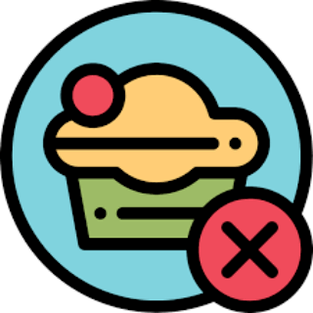Among people who lose weight, the Japanese diet has become very popular. Most importantly, they are attracted by the short duration (only 14 days) and the availability of essential products.
How the Japanese diet came about
Many people think that the Japanese diet is related to the daily diet of the residents of the country, but this is not the case. Most likely, due to strict adherence to the diet and the need for high efficiency, the diet has gained this name. The Japanese have a very responsible and responsible attitude. They will concentrate on any business and strictly abide by the established rules, which is why they have achieved high success.
Another form of the appearance of the name is the source of the diet. It is believed that it was developed by the Japanese clinic Yaeks. Naomi Moriyama, a nutritionist who developed the weight loss system, is confident in its efficacy and the adaptability of its products to the daily diet of Europeans, whose tastes are very different from those of Japanese.
Benefits of the Japanese diet

The Japanese diet will help cleanse the toxins in the body and improve the metabolism in just 14 days.
A lot of fruits will saturate fiber and help improve intestinal function, while adequate food can maintain fullness and high performance.
Features and principles
The diet is different from many other diets and does not imply partial nutrition. It is designed for three meals, no other snacks. You can’t change your diet in certain places and try to "improve" your diet in any way, otherwise it will no longer be a Japanese diet and you must start over.
Every morning, you should drink a glass of cold water, which will help speed up your metabolism and eliminate hunger. The rest of the time, it is recommended to drink as much pure minerals (non-carbonated water) or boiled water as possible.
shopping list

In order to successfully maintain your diet, you should buy the following foods:
- 1 packet of any kind of green tea you like. Make sure that there is no taste in the composition.
- 1 pack of high-quality coffee beans (or ground).
- 2 cassettes (20) eggs.
- 1 kg chicken fillet (breast).
- 1 kg beef jelly (lean meat is best).
- 2 kilograms of fish fillets.
- 0. 5 liters of extra virgin olive oil.
- 2 medium-sized cabbage.
- 1 kg of zucchini or eggplant.
- 2-3 kg of fresh carrots.
- 1 kg of any fruit except bananas and grapes.
- 1 liter of tomato juice.
- 1 liter kefir.
- 2 lemons
All terms should be up-to-date and the best.
What should not be eaten in the diet

Avoid sugar and salt completely during the Japanese diet. The same rules apply to all kinds of baked goods, sweets and alcoholic beverages.
Japanese food menu
The Japanese diet is very similar to the well-known chemical diet, which is usually used to treat obesity in diabetic patients. It also has the effect of reducing the number of carbohydrates and increasing the proportion of protein.
The diet menu is very strict and changes are not allowed.
first day
- Breakfast: black coffee without added sugar, sweeteners or milk.
- Lunch: 2 boiled eggs, boiled cabbage, seasoned with vegetable oil and a glass of tomato juice.
- Dinner: 200 grams of fried or cooked fish.
the next day
- Breakfast: black coffee and a slice of rye bread.
- Lunch: Cabbage seasoned with vegetable oil and 200 grams. Fried or cooked fish.
- Dinner: a cup of 100 grams of kefir. Boil beef.
The third day
- Breakfast: black coffee and a slice of rye bread, heated in a toaster (you can replace it with unflavored biscuits).
- Lunch: Any amount of zucchini or eggplant is fried in vegetable oil.
- Dinner: Salad of raw cabbage, seasoned with vegetable oil + 200 grams. Boil beef without salt.
Fourth day
- Breakfast: Fresh medium-sized carrots, chopped and chopped, or sliced into thin slices in other convenient ways, plus whole lemon juice.
- Lunch: a glass of tomato juice + 200 grams. Boiled or fried fish.
- Dinner: Salad over 200 grams. Any fruit.
Fifth day
- Breakfast: Fresh medium-sized carrots, chopped or chopped, or cut into whole lemon juice by other convenient methods.
- Lunch: a glass of tomato juice + 200 grams. Boiled fish.
- Dinner: 200 grams of any fresh fruit.
Sixth day
- Breakfast: black coffee without additives.
- Lunch: 500g boiled chicken breast, unsalted + fresh carrot and cabbage salad, seasoned with oil.
- Dinner: a whole fresh carrot + 2 boiled eggs.
Seventh day
- Breakfast: a cup of green tea.
- Lunch: 200 grams of boiled beef without salt.
- Dinner: 200 grams of any fresh fruit, or 200 grams. Boiled or fried fish, or 2 hard-boiled eggs + fresh carrots, or a piece of boiled beef with a cup of kefir.
Eighth day
- Breakfast: black coffee.
- Lunch: 500g boiled chicken breast, unsalted + raw carrot salad and cabbage, seasoned with vegetable oil.
- Dinner: 2 hard-boiled eggs + fresh carrot salad mixed with vegetable oil.
ninth day
- Breakfast: Fresh carrots and lemon juice seasoned.
- Lunch: 200 grams of boiled or fried fish and a glass of tomato juice.
- Dinner: 200 grams of any fresh fruit.
tenth day
- Breakfast: sugar-free black coffee.
- Lunch: 3 medium carrots, dipped in vegetable oil + boiled egg + 50 grams. cheese.
- Dinner: 200 grams of any fresh fruit.
11 days
- Breakfast: additive-free black coffee and a slice of rye bread.
- Lunch: any amount of eggplant or zucchini, fried in vegetable oil.
- Dinner: 200g boiled unsalted beef, fresh cabbage salad, seasoned with vegetable oil and 2 boiled eggs.
The twelfth day
- Breakfast: black coffee.
- Lunch: 200 grams of boiled or fried fish, add fresh cabbage salad, seasoned with vegetable oil.
- Dinner: a glass of kefir + 100 grams. Boiled beef without salt.
Thirteenth day
- Breakfast: black coffee without additives.
- Lunch: boiled cabbage, seasoned with vegetable oil + a cup of tomato juice + 2 boiled eggs.
- Dinner: 200 grams of beef cooked or fried in vegetable oil.
Fourteenth day
- Breakfast: black coffee without additives.
- Lunch: 200 grams of boiled or fried fish, fresh cabbage salad, seasoned with olive oil.
- Dinner: 200 grams of unsalted boiled beef + a cup of kefir.
How to stay on a diet

In order not to interrupt your diet when it is most inappropriate, try to follow the suggestions below:
- Arrange it in months without major holidays and travel;
- Always remember your motivation to lose weight;
- Find one's hobby;
- Arguing with a loved one that you will not fail;
- Only believe in your own power!
How to get in and out of Japanese food
Any diet is very stressful on the body, so you should prepare in advance.

Start limiting your sugar intake at least one week before the specified date and gradually reduce your food intake. You should also try to reduce (or even eliminate) all dishes that can be classified as "fast food", "sweet" or "starch" in your diet. For example, if you eat 5 cakes a day, then one should be removed from the diet every day of the week. Then, on the first day of the diet, the body will live peacefully and harmlessly for 2 days without cake.
Many people find it helpful to surround themselves with various Japanese accessories (chopsticks, tea ceremony, figurines, etc. ). They will help you make psychological adjustments in the right way.
When the diet is over, do not run and overeating immediately anyway. Start with small parts and gradually introduce familiar foods into the diet. Then, the effect of weight loss will last for several years, because it is not recommended to eat early. The best solution is to introduce yourself to proper nutrition. This habit will keep you in shape at all times.
Contraindications
There is no ideal diet, so even this system is not suitable for everyone. First of all, in the process of nutritional restriction, the human body is forced to undergo strict psychological tests. This is especially true for people living in big cities, where you can find a variety of cafes and fast food restaurants at every step. In addition, during the diet, the access to nutrients is severely restricted, which is an additional pressure on the body.
If a person has problems with the work of the cardiovascular system, kidneys, or liver, they have chronic gastritis or ulcers, and should not accept the Japanese diet anyway. Otherwise, all diseases will worsen drastically: a large amount of fluid will affect the kidneys, and because of the high caffeine content, green tea and coffee have obvious effects on the heart.
Similarly, salt restrictions can lead to serious consequences. Any doctor will confirm that a small amount of salt is only necessary for the normal functioning of the human body, and the rapid discharge of salt will cause the discharge of fluid and thicken the blood in the blood vessels. Therefore, despite strict dietary recommendations, many experts still recommend adding a little salt to the food.
Japanese diet has many advantages and is easily accepted, but it may be contraindicated for people with certain diseases. Gwyneth Paltrow and many other famous figures effectively lost weight.
































